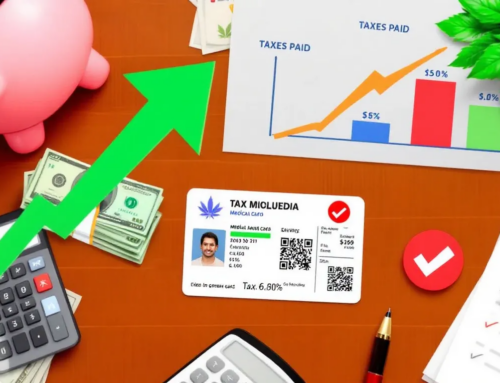Marijuana Detox is the process of clearing the body of cannabis and all its metabolites, like removing tetrahydrocannabinol (THC), which is the primary psychoactive element found in marijuana. People who are trying to lose weight, athletes, and people who don’t consume cannabis often undergo this detox process for specific reasons, such as to pass a drug test or to gain control over themselves after being addicted to drugs.
Quitting marijuana can be challenging, and some people may face withdrawal symptoms. These symptoms can include mood swings, trouble sleeping, increased anxiety, and strong cravings for the drug. However, with the right treatment, guidance, and a clean lifestyle, it is possible to make the detox process easier.
How Long Does Marijuana Stay in Your System?
The time it takes to detox from marijuana varies for each person. THC, the main component in marijuana, is stored in fat cells, which means it stays in the body longer than other drugs. Here’s a general timeline for how long marijuana can be detected in different types of drug tests:
– Blood Test: 1-2 days
– Saliva Test: 1-3 days
– Urine Test (for occasional users): 3-7 days
– Urine Test (for frequent users): 10-30 days
– Hair Test: Up to 90 days
Frequent and heavy marijuana users will take longer to detox than occasional users. If you depend on marijuana, the detox process may take even longer.
What Are the Symptoms of Marijuana Withdrawal?
If someone who frequently smokes marijuana suddenly stops, they are likely to go through mild withdrawal symptoms that can be uncomfortable. Symptoms Include:
- Getting easily annoyed or irritated.
- Feeling bummed out or anxious, which comes with increased stress levels.
- Having difficulty staying or falling asleep.
- Some people might experience reduced appetite.
- Physical discomfort caused by anxiety, such as headaches and feelings of nausea.
- Severe Marijuana withdrawal tends to be caused by the urge to use the substance again.
Most of the symptoms will reach their peak within the first week and naturally fade over two weeks. However, longer users will psychologically struggle with anxiety and intense cravings for sustained periods.
How to Detox from Marijuana Naturally
If you’re wondering what marijuana detox is, the natural approach is often the safest and most effective way to cleanse your body. Here are the best steps to follow:
1. Stop Marijuana Use
In this case, the most crucial step is going to be to suspend all intake of the substance. The longer one stays away, the more significant amount of THC will passively exit the body.
2. Stay Hydrated
Drinking large amounts of water aids in flushing THC metabolites through urinal excretion. Herbal teas and electrolyte drinks, as well as lemon water, can support detoxification.
3. Eat a Clean Diet
Elimination of THC will require considerable effort, but adhering to these measures can accelerate the process. Since THC is stored in fat cells, a fat, fiber, fruit, vegetables, and lean meat-intensive diet is bound to speed up elimination.
4. Regular Exercise
Cardio exercises such as running, swimming, and cycling improve fat burning, speeding the removal of THC. Strength training also boosts metabolism.
5. Plenty Of Sleep
Aim to get an uninterrupted 7 to 9 hours every night to aid the body’s recovery after physical rest.
6. Natural Detoxifiers
Some dietary supplementation, herbs, and general foods like green tea, cranberry juice, and activated charcoal may assist with detoxification.
How to Pass a Drug Test After Marijuana Use
Many people stop using marijuana so they can pass drug tests for jobs or sports. Here are some simple tips to help:
- Drink Water: It helps clear out your body.
- Exercise: Moving around can help get rid of THC, which is what marijuana leaves behind.
- Eat Fiber: Foods like fruits and vegetables help your body digest things better.
- Use Detox Kits: Some drinks say they help, but they don’t always work.
- Give It Time: Let your body detox naturally for at least 2-4 weeks.
Remember, some quick tricks, like fake urine, might not work.
Treatment for Heavy Marijuana Users
Detox vs. Rehab: When Detox Isn’t Enough, and Rehabilitation May Be Necessary
For people who use a lot of marijuana, detox might not fix the problem completely. Detox helps get rid of a chemical in marijuana called THC and can make the person feel less angry, anxious, or sleepy. But detox only helps with how the body feels. The mental part of being addicted takes longer to change.
In these situations, rehab can help. Rehab allows a person to stop using marijuana and addresses the emotional and behavioral issues tied to the addiction. Through therapy, education, and support, individuals learn how to respond to stress and manage intense cravings. They also identify triggers that may lead to relapse.
Rehabilitation programs may be inpatient— patients reside in a therapeutic setting and receive care around the clock—or outpatient, when clients attend scheduled sessions but return home afterward. Through rehab, they learn how to manage overwhelming urges that come with trying to quit. These patients are the most helped by such programs because they know how to cope with addictions and dependencies that many facets of life have become toxic and problematic.
Support Groups and Therapy: Benefits of Counseling or Group Support During Detox
Support Groups: A Lifeline During Detox
Implementing marijuana detox can feel alone and very difficult. Having a support system will help with progress and control emotional breakdowns. Support groups like Marijuana Anonymous offer supportive and accepting groups where other participants can relate to the issues one is facing. The support of the group helps to become more self-sufficient, where everyone aids each other to overcome problems, achieve goals, and learn new concepts. Motivation helps the individual work towards their recovery milestone.
Dealing with drugs entails understanding the mental challenges that require one to abuse drugs. These issues, along with support groups, guide one during the time of need.
Therapy During Detox: Understanding the Emotional Triggers
Therapy is just as important as support when it comes to marijuana detox. It does not matter if it is an individual or a group therapy session; either way, therapy sessions guide one regarding the feelings attached to the drug.
Different coping mechanisms will make the participant work towards their problems without the need for substance abuse. Counselors and groups trained to cope with families of substance abusers advocate for control and processes in place during drug detox sessions.
Therapy should not stop when an individual finishes the session. The family portion of counseling is equally important when it comes to supporting loved ones during the challenging journey. Therapy helps restructure not only the mindset of the user but also equip the family with appropriate strategies that aid in encouraging recovery.
Is Marijuana Detox Right for You?
No matter if you want to detox for a drug test, improve your physical health, or combat weed dependency, approach all of these problems differently.
For all adult casual users, if you want to cleanse your body, a natural detox through hydration, dieting, and exercising should do the trick.
For adults with marijuana use disorder or addiction, professional help might be a necessity through cognitive behavioral therapy (CBT), contingency management (CM), or a clinical treatment facility.
If you are currently undergoing withdrawal symptoms, rest easy, knowing that they are manageable and temporary with the proper support.
Final Thoughts
Marijuana detox means removing THC from your body and stopping marijuana use. Everyone’s experience is different, but with good habits and support, you can feel better and start fresh.
You might want to detox to pass a drug test or improve your mental health. Stay focused and ask for help if you need it.
If you’re thinking about detoxing, take small steps, care for your body, and seek support from others. Remember, you’re not alone!




